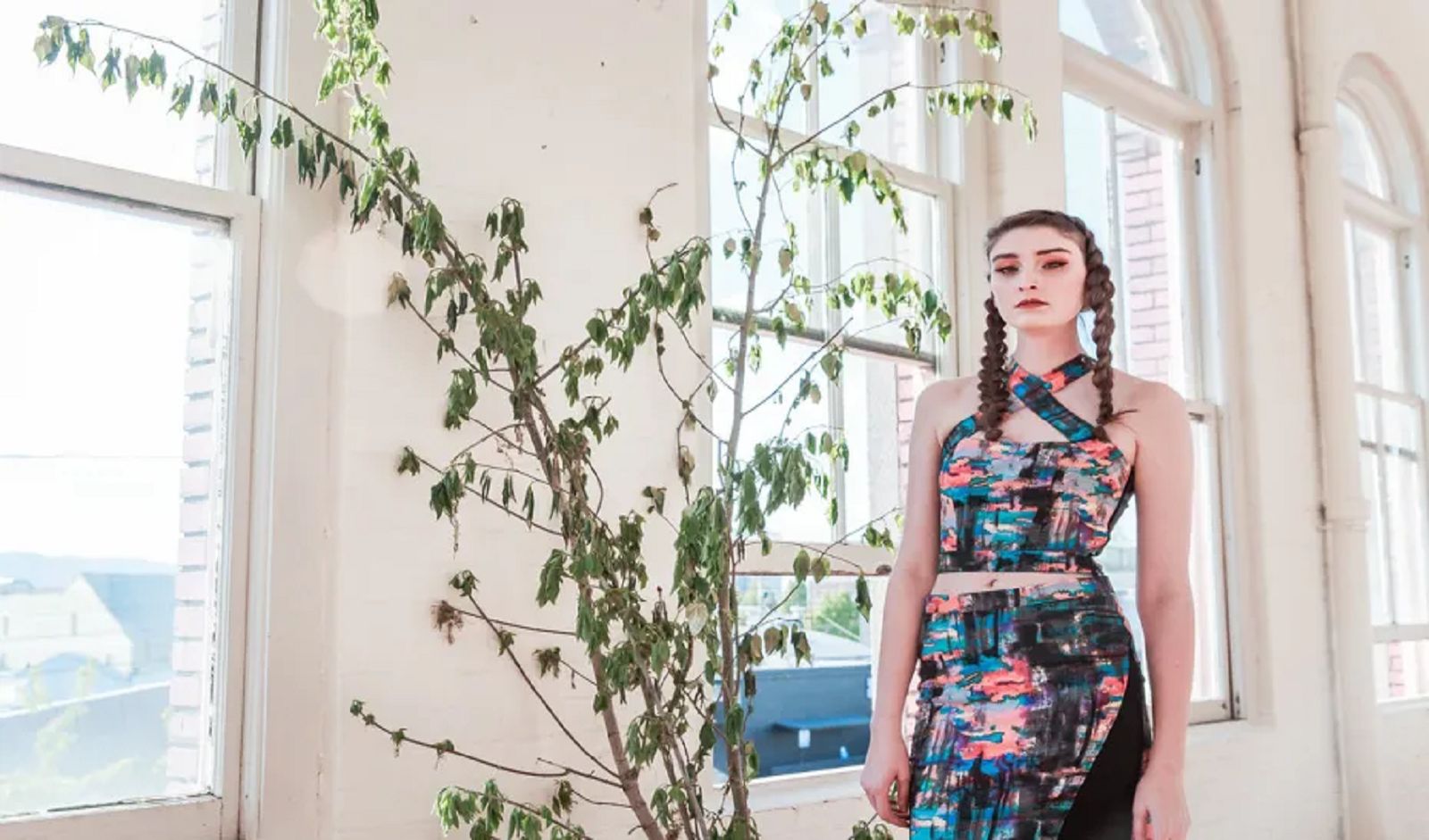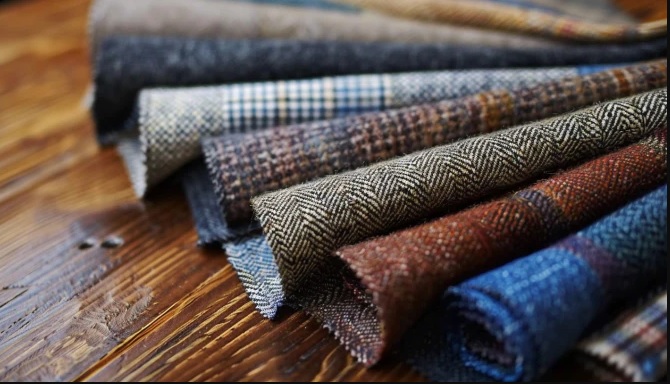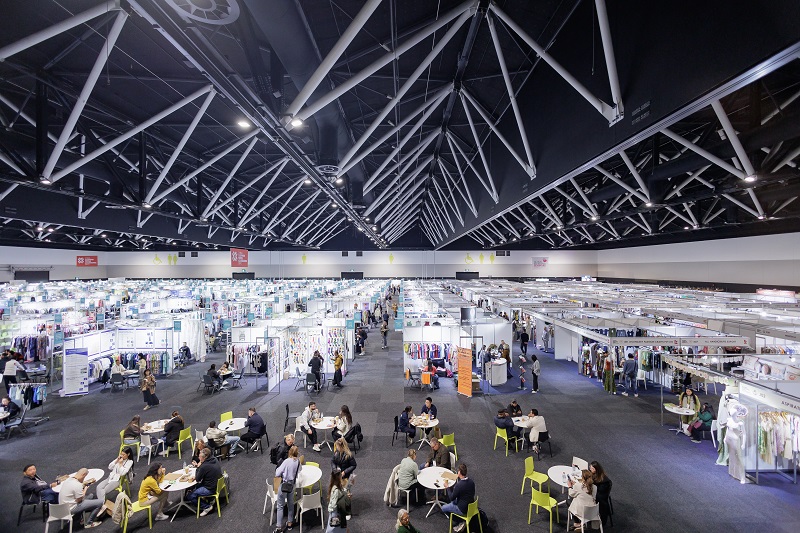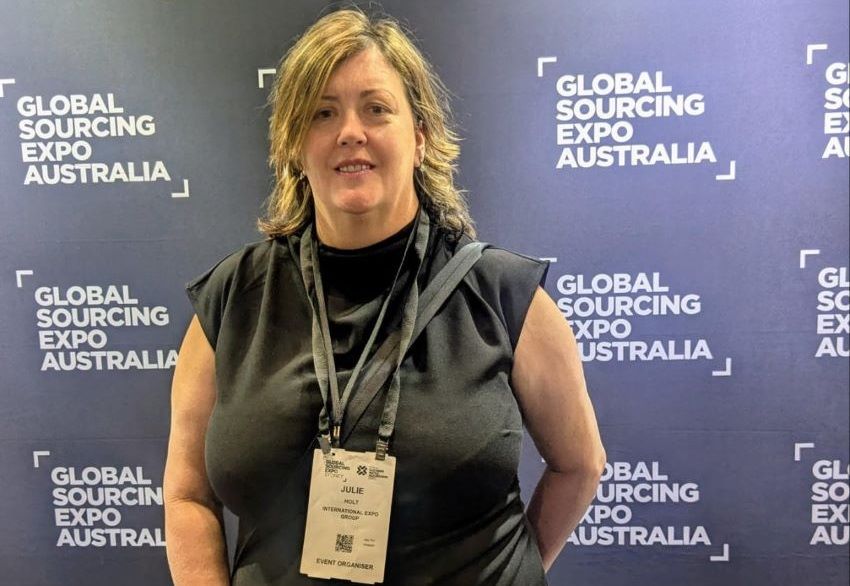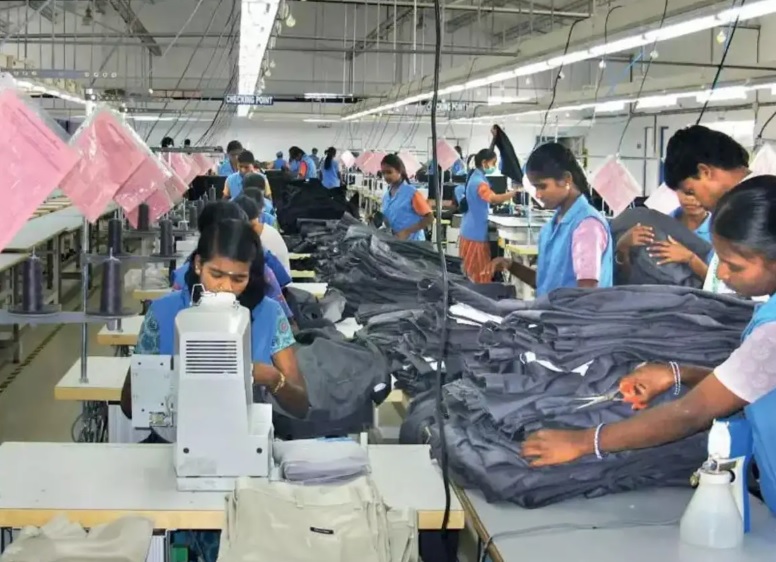FW
Burberry has installed a new pavilion at Neiman Marcus NorthPark in Dallas. To run until Nov 10, 2024, the pavilion is inspired by the traditional park pavilions in the UK. It pays homage to Burberry's iconic outerwear heritage by offering visitors a unique, British-inspired experience.
The highlight of this pavilion is Burberry’s iconic trench coat, a symbol of British craftsmanship for over a century. Alongside this classic piece, the pavilion also features new designs including key outerwear styles for Winter 2024 such as parkas, puffers, aviator, and Harrington jacketsfrom Daniel Lee, Creative Director.
Additionally, the installation showcases a range of menswear and womenswear items from Burberry’s latest collection, with a focus on signature pieces like Burberry Check scarves, bags, and shoes.
A part of Burberry's broader global campaign, ‘It’s Always Burberry Weather,’the installation embraces the brand’s history of crafting outerwear designed to withstand ever-changing weather conditions. Named after a vintage Burberry slogan, the campaign celebrates the timeless relevance of Burberry’s outerwear and coincides with a series of pop-ups, window displays, and in-store activations worldwide.
The pavilion blends retail and entertainment to offer our clients a chance to discover Burberry’s rich outerwear heritage a captivating and memorable way, says Lana Todorovich, Chief Merchandising Officer, Neiman Marcus. The installation exemplifies the retailer’s ‘Retail-tainment” strategy, creating an extraordinary shopping experience for customers.
Kraig Biocraft Laboratories, Inc, a leader in spider silk-based fibers, announced plans for an investor web conference in the coming weeks. The Conference aims to provide a comprehensive overview of the Company’s achievements in commercializing its innovative spider silk technology over the past year.
As part of its commitment to transparency and engagement with shareholders, Kraig Labs will discuss recent advancements, production metrics, and strategies enhancing its market trajectory. Attendees can expect insights on total spider silk production, next-generation fiber development, targeted markets for early adoption, and production forecasts for 2024. These advancements are poised to significantly impact the global performance materials industry.
Kim Thompson, Founder and CEO of Kraig Labs, expressed excitement about the progress made in scaling spider silk production. He noted that the upcoming conference will highlight the company's advancements and demonstrate how they are implementing a commercially scalable spider silk system for textile markets.
Details for the conference are being finalized, and further announcements regarding the confirmed date and additional information will be released as the event approaches. This initiative reflects Kraig Labs ongoing efforts to engage with investors and promote its innovative technology.
Mohomed Bashir, the newly appointed President of the International Cotton Association (ICA), marks a significant milestone as the first Pakistani to lead the global body. Bashir, who also chairs Gul Ahmed Textile Mills, emphasized his commitment to fostering inclusivity, diversity, and collaboration within the cotton industry.
Bashir aims to enhance leadership representation and ensure every voice is heard, regardless of gender, culture, or industry segment. He sees his presidency as a platform to promote growth and equal opportunities, advocating for success based on merit and inclusivity.
Addressing the challenges faced by the cotton industrysuch as climate change, currency fluctuations, and evolving legislationBashir stressed the importance of uniting all supply chain sectors to find effective solutions. He called for increased participation from producers, retailers, and various regional sectors, highlighting the necessity of diverse perspectives in navigating industry complexities.
As President, Bashir seeks to protect stakeholders' interests and promote sustainable solutions. He encourages collaboration and innovation to tackle the industry's challenges and ensure a bright future for the global cotton community.
Bashir's extensive experience includes serving on various boards, including Gul Ahmed Energy, Habib Metropolitan Bank, and the International Textile Manufacturers Federation (ITMF). His contributions have earned him numerous accolades, including the Sitara-e-Imtiaz from Pakistan and the Knight of King, Northern Star Order from Sweden.
With a 23-member board, ICA continues to represent the global cotton supply chain, reinforcing its commitment to engaging the international cotton community.
Expotextil, Peru’s key trade fair for the textile and clothing sector, will be held in Lima from November 7 to 10, 2023. A delegation of Italian textile machinery manufacturers, organized by the Italian Trade Agency and ACIMIT, will participate, with 14 companies, including 11 ACIMIT members like Color Service, Danti, Dettin, and Santoni, among others.
Peru’s textile industry, a vital part of its economy, is a global leader in alpaca fiber production, accounting for over 80 per cent of global output. Cotton cultivation is also significant, particularly in northern Peru. In 2023, Peru’s textile and clothing exports reached $1.87 billion, reflecting a 19.6 per cent growth.
Marco Salvade, ACIMIT president, highlighted the importance of technological renewal for the Peruvian textile sector, emphasizing that Italian machinery offers efficient and resource-saving solutions. Peru, the second-largest South American market for Italian textile machinery, imported around €18 million worth of Italian equipment in 2023. In the first half of 2024, Italian sales reached €8 million, reinforcing the longstanding partnership between the two countries.
The Italian presence at Expotextil aims to further strengthen these business ties, helping Peruvian firms enhance production quality and remain competitive globally.
Operator of the Moss menswear chain, Moss Group’s revenue declined to £137.5 million during FY24 from £151.5 million in the previous year. The group’s EBITDA also declined to £25 million from nearly £36 million, while pre-tax profit halved to £16.6 million, and net profit lowered to £13.6 million from £26.7 million. The company attributed this decline in sales to a normalisation of wedding demand following a post-pandemic surge, which led to an overall sales decrease of 9.3 per cent.
Despite these challenges, Moss Group reported strong trading since the end of the financial year and expects this momentum to continue through January 2025. The company remains committed to providing high levels of service in its stores and has upgraded its online platform. It has also expanded its casualwear offering and rebranded its stores. To reflect a more modernised focus while honoring its heritage, the company has dropped the word, ‘Bros’from its name.
Acknowledging market uncertainties and rising costs, Moss Group maintained an 18.2 per cent EBITDA margin, describing it as a ‘creditable’ performance. The group remains debt-free and highly cash-generative, indicating strong financial resilience despite wider difficulties in UK retail. It believes its focus on offering high-quality products at reasonable prices positions it for future growth.
Looking ahead, Moss plans to optimise its store network by relocating five stores, refurbishing one, and opening three new locations. The company also plans to focus on cost control and product improvement to stay relevant in a competitive market. Besides, it aims to maintain a balance between its core formalwear offerings and an expanding casualwear range.
With the launch of new initiatives like increased use of recycled materials and opening repair studios, Uniqlo aims to reduce greenhouse gas emissions by 90 per cent by the year 2030. Tadashi Yanai, CEO, highlights the brand’s focus on innovation, such as partnerships with Toray, a Japanese materials manufacturer.
Uniqlo's success lies in its focus on functional, affordable basics rather than chasing fast fashion trends. Known for wardrobe essentials, the brand recently gained fashion credibility, with items like its $20 cross-body shoulder bag becoming a cult favorite, dubbed the ‘millennial Birkin.’
The brand has carved a niche amongst consumers by offering timeless, quality clothing at accessible prices. Kate Yuille, a Gen Z fashion content creator, says, Uniqlo offers good quality for the cost. Embracing Uniqlo’s understated designs, luxury consumers are also seen often pairing them with high-end pieces, a trend that reflects the current mix-and-match ethos in fashion.
Aligning with the growing ‘slow fashion’ movement, Uniqlo emphasiseson longevity and functionality over fast fashion’s constant style refreshes. Martin Roll, Global Business Strategist, notes, consumers view Uniqlo as a more environmentally conscious choice, though the brand has faced criticism for producing large quantities of clothing and allegations regarding its supply chains.
Unlike fast-fashion rivals like Zara, Uniqlo releases collections seasonally rather than flooding the market with constant new designs. Its uncluttered stores, simple aesthetic, and product innovations like Heat Tech thermal wear contribute to its appeal, reinforcing its reputation for quality and reliability in both Japan and global markets.
Reporting record earnings for the third consecutive year, Uniqlo’s parent company, Fast Retailing’s reported a 19 per cent rise in international sales during the fiscal year ending Aug’24. The company’s sales in Japan rose by 4.7 per cent during the month.
Chinese e-commerce platforms Temu and Shein are ramping up efforts to capture Vietnam’s growing market by offering steep discounts and promotions. Temu, owned by PDD Holdings, recently launched in Vietnam, selling directly to consumers with offers such as free shipping for orders over ₫120,000 and hefty first-time purchase discounts. Similarly, Shein offers free shipping on orders above ₫200,000, enticing Vietnamese shoppers.
Vietnam's e-commerce market, which grew by 25 per cent annually, attracted major platforms like Taobao and JD.com, spurred by open policies and strong retail potential. The market is valued at $23.8 billion in 2023, ranking third in Southeast Asia.
However, the influx of cheap Chinese goods is pressuring local retailers. Platforms like Temu and TikTok offer lower-priced alternatives, forcing domestic sellers to compete on price. Some countries, including Indonesia, have already banned Temu to protect local businesses.
Experts argue Vietnam should regulate foreign platforms without banning them, ensuring local businesses can compete on a level playing field. The Ministry of Industry and Trade is working to enhance regulations and increase oversight to protect both consumers and local sellers in the rapidly growing digital marketplace.
The Global Fashion Summit, a premier international forum for sustainable fashion organized by Global Fashion Agenda (GFA), will be hosted in China for the first time. The Global Fashion Summit: Shanghai Gala edition is set for 7 November 2024 during the China International Import Expo (CIIE). This event, co-presented by GFA and Chinamind Next, will convene local and international stakeholders for discussions on sustainability, complemented by a gala dinner.
Since its inception in Copenhagen in 2009, the Global Fashion Summit has been a key platform for addressing critical environmental, social, and ethical challenges in the fashion industry. The Shanghai edition will build on the theme from the Copenhagen Summit held in June, ‘Unlocking The Next Level, emphasizing the need for collaborative action and evidence-based progress to meet urgent sustainability goals.
As China is a major player in the global fashion industryaccounting for 31.6 per cent of global readymade garment exports in 2023, the Shanghai Gala will highlight China's crucial role in driving sustainable transformation. With the rapid growth of ultra-fast fashion and a booming luxury market, China’s influence on consumer behavior and industry trends is undeniable. The event aims to foster collaboration across the global fashion value chain, address pressing environmental and social issues, and promote innovative solutions.
The gala dinner will precede GFA's participation in CIIE on 8 November, where GFA CEO Federica Marchionni will present on the role of innovation and emerging technologies in achieving climate goals.
Marchionni emphasized the importance of mobilizing alliances across the global fashion ecosystem, stating that the Shanghai Gala marks a vital step toward a more sustainable future. Lynn Fu, CEO of Chinamind Next, highlighted the opportunities for Chinese and international brands to expand their presence and collaboration through the summit.
Mohite Industries has forged strategic partnerships with global fashion brands in Spain and Japan to facilitate the widespread adoption of its newly developed innovative yarn in high-end fashion products.
The company recently developed a patented yarn that offers superior strength, softness, and colorfastness and is highly suitable for premium textile applications.
Established in 1990, Mohite Industries, with a sprawling 35-acre facility in Vadgaon, near Kolhapur, Maharashtra, leverages cutting-edge technology and machinery to set new benchmarks in textile production. This year, the company revenues grew to Rs 850 crore and a profit to 75 crore,
To enhance production capacity, Mohite Industries has acquired several state-of-the-art machines from renowned global leaders like Rieter, Schlafhorst, Luwa, Volkmann, and Uster. This enables the company to produce premium quality yarn for export to various countries.
Initially focusing on the production and export of 100 per cent cotton yarn in the 20's to 60's count range, Mohite Industries has expanded its product portfolio to include gray knitted fabric. The company has also installed advanced knitting machines to cater to the growing demand for this product. Further, it plans to establish fabric processing facilities to further integrate into the textile value chain.
The company's research and development division aims to develop customsied innovative solutions to meet the specific needs of each customer. Coupled with a relentless pursuit of new markets and challenges, this customer-centric approach strengthens Mohite Industries’ position as a dynamic and modernistic company.
Mohite Industries’ unwavering commitment to quality, customer satisfaction, and sustainable growth has positioned it as a frontrunner in the textile industry. With its focus on research and development, strategic partnerships, and a diverse product portfolio, Mohite Industries is poised to set new benchmarks in the textile sector
With the Saudi Fashion Commission forecasting a 48 percent rise in apparel and footwear retail sales by 2025, international fashion brands are vying for a share of this burgeoning market.
This competitive trend was witnessed during a recent panel discussion held in preparation for Saudi Lifestyle Week 2025 at the Riyadh International Convention and Exhibition Center. The event drew prominent fashion leaders from Italy, Portugal, Germany, and Spain, all eager to explore opportunities in Saudi Arabia's rapidly expanding fashion industry.
According to the event organisers, the Kingdom’s retail footprint is set to grow, with 962,000 sq m of new retail development expected this year alone. Combined with a youthful, tech-savvy population increasingly drawn to e-commerce, this expansion creates an ideal environment for international brands to establish themselves and thrive in the Saudi market.
João Maia, General Manager, The Portuguese Footwear Association, notes, there is a rising demand for premium footwear in Saudi Arabia, particularly among younger consumers who prioritise both style and comfort.
Similarly, KoraySuce from Expotim, representing Turkish fashion brands, highlights the significant growth opportunities for Turkish companies in Saudi Arabia. The Kingdom’s Vision 2030 initiative drives consumers toward more diverse and global fashion options, presenting a substantial opportunity for Turkish brands to expand, he avers.
The rise of e-commerce has also reshaped the fashion landscape in Saudi Arabia, with more than 5,000 online apparel stores launching in 2024. This surge in digital retail aligns with global trends, especially among younger shoppers who seek convenience and a wider variety of products. Marlene Oliveira, Head -International Unit, CENIT (Centro de Inteligencia Textile), points out, the increasing affinity for online shopping for apparel and accessoriesamongst Saudi Arabiaconsumers presents a golden opportunity for brands to enhance their digital presence and offer personalised shopping experiences.
Another key attraction for international brands entering the Saudi market is growing luxury market. In 2021, the Gulf region’s luxury fashion purchases reached $9.7 billion in 2021, with Saudi Arabia driving 19 percent of this growth. Manfred Junkert, CEO, German Footwear Association, emphasises, Saudi consumers are becoming more sophisticated and increasingly drawn to sustainable, well-crafted products. German brands are responding to this trend by developing eco-friendly footwear collections tailored to the Saudi market.


